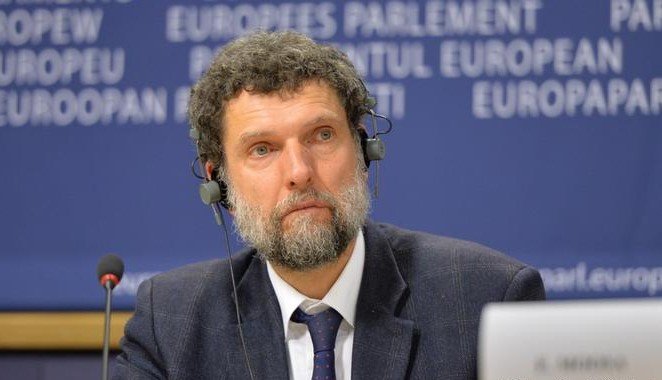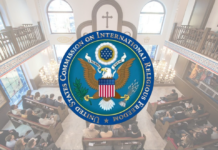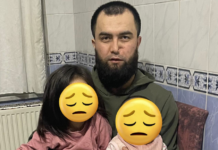A panel of judges at an İstanbul court who were to decide on a request for a retrial from the lawyers of jailed businessman and philanthropist Osman Kavala has been replaced, in a development that raised hopes about the prospects of the retrial and eventual acquittal of the businessman, Turkish Minute reported.
Kavala, who was arrested in 2017, was sentenced to life in prison in 2022 for allegedly trying to topple President Recep Tayyip Erdoğan’s government with the Gezi Park protests, which erupted in the summer of 2013 in İstanbul against government plans to destroy a park in central İstanbul.
The Gezi Park trial is seen as a politically motivated trial aimed at punishing Erdoğan’s critics and intimidating others who would protest the government again.
İlkkan Koyuncu, one of Kavala’s lawyers, told the Bianet news website that the panel of judges at the İstanbul 13th High Criminal Court, which handed down a life sentence to Kavala, has been replaced.
The replacement comes shortly after Hilal Zengin, a member of Kavala’s legal team, on May 3 lodged a third petition with the İstanbul 13th High Criminal Court requesting a retrial in his case, arguing that Turkey’s shift to a presidential system has rendered previous charges against Kavala obsolete.
The lawyer said Kavala was sentenced to life in prison for allegedly attempting to overthrow the Turkish government but that a referendum in 2017 changed the country’s parliamentary system of governance to an executive presidency, abolishing the office of the prime minister and the cabinet serving under him, the supposed victims of the crime.
Main opposition Republican People’s Party (CHP) Deputy Chairperson Gül Çiftçi, also a lawyer, announced on X on Tuesday that the replacement of the panel of judges has taken place in line with Article 23 of the Turkish Code of Criminal Procedure (CMK), which states that in the event of a retrial, a judge who heard the first trial cannot hear the retrial.
Çiftçi said a request for a retrial from all the defendants in the Gezi Park trial should be approved and that justice should be served.
Seven other defendants in the Gezi Park trial were given 18 years each on charges of aiding an attempt to topple the government.
The rulings, upheld by the top appeals court last year, sparked international condemnation as well as protests across Turkey for being politically motivated.
Kavala also demanded a retrial in a written statement released last week on his website through his lawyers.
“It is a requirement of the fundamental principles of law and respect for human rights that cases involving blatant rights violations, convictions without evidence and years of imprisonment of innocent people be retried,” he said, underlining that justice is necessary for all.
The developments follow debates over Kavala’s imprisonment after a rare face-to-face meeting between President Erdoğan and Özgür Özel, leader of the CHP, on May 2. In a press release after the meeting, Özel said he discussed Kavala’s situation with the president.
In the March 31 local elections, Özel’s CHP emerged as the leading party for the first time in 47 years, securing 37.7 percent of the vote, maintaining control of key cities and securing substantial gains in other regions, while Erdoğan’s Justice and Development Party (AKP), for the first time in 22 years, came in second, garnering only 35.4 percent of the vote. The CHP’s election success has given it more leverage in issues overlooked by Erdoğan’s AKP like Kavala’s imprisonment.
A judgment in Kavala’s case in December 2019 by the European Court of Human Rights (ECtHR) found his detention to be arbitrary, politically motivated and in pursuance of an “ulterior motive,” that of silencing him as a human rights defender.
The non-implementation of the 2019 ruling prompted the CoE Committee of Ministers to launch an infringement procedure against Turkey in February 2022. Possible sanctions include European countries initiating investigations into people involved in Kavala’s imprisonment and Turkey losing its voting rights at Parliamentary Assembly of the Council of Europe (PACE).















